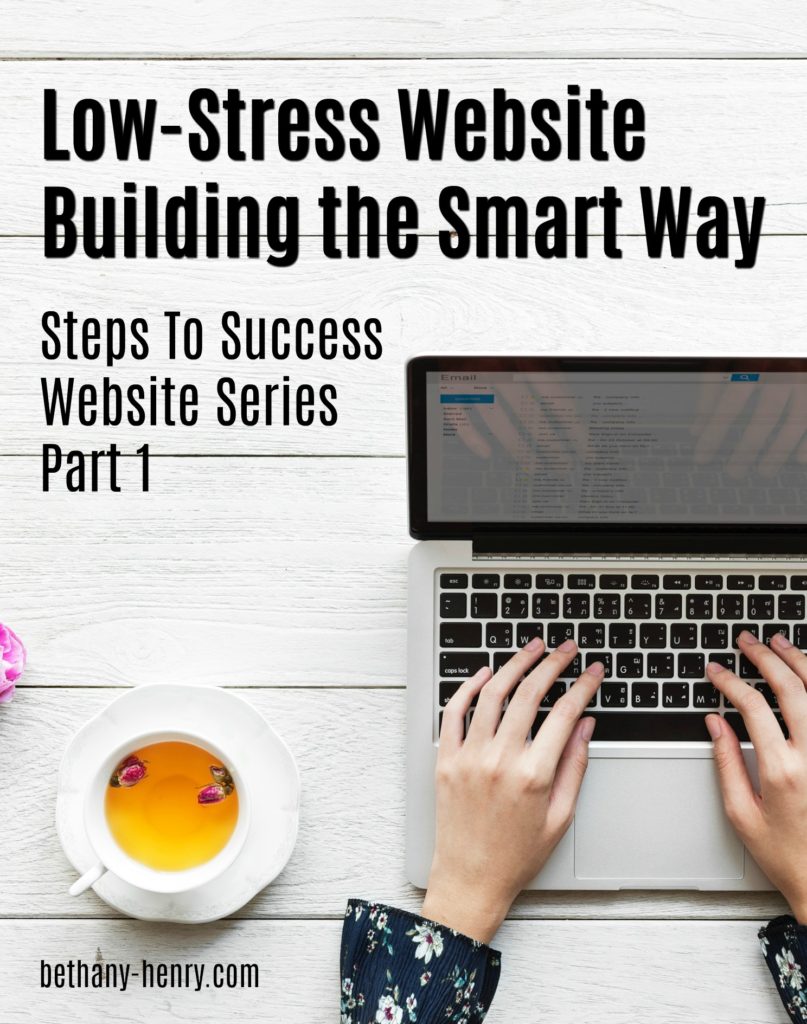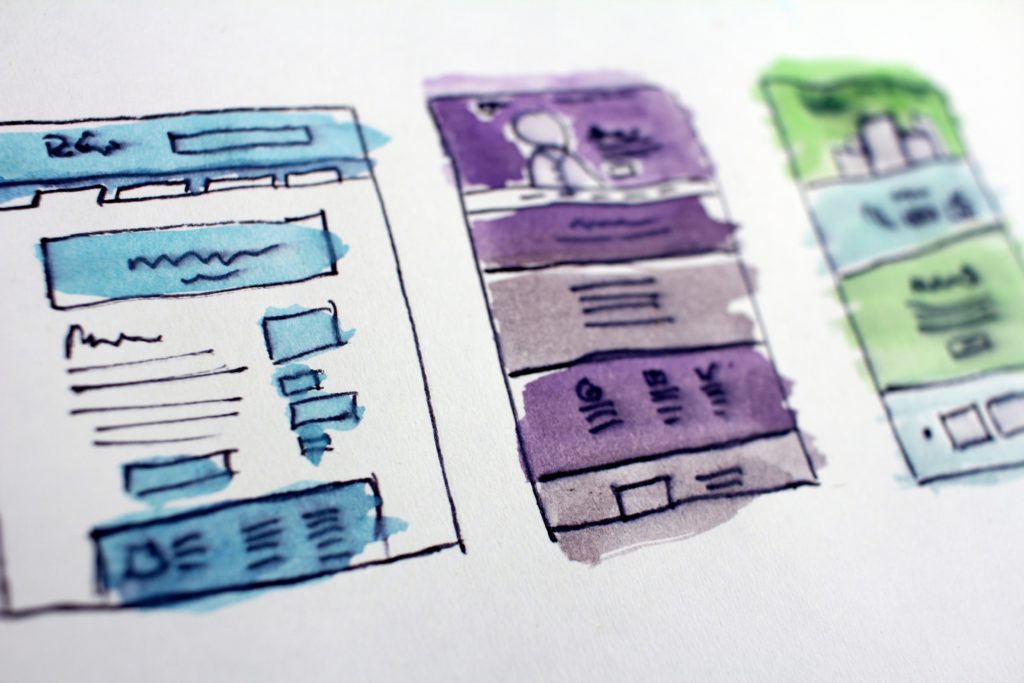Ever thought about setting up your own website? Daydreamed of writing your own blog? Maybe put off both of the above because it just seemed like a lot of work?
Today we’re looking at both why you should have your own website (yes, you really should) and why it’s easier than you think. We’ll also cover some brainstorming to get started.

First of all: Today it is more important than ever to have some sort of online presence.
Pretty much everyone is online to some degree these days, which means if we *aren’t* online we’re missing out on a huge way of connecting with our readers, customers, and various resources.
Having our own website:
- gives us credibility
- connects us with readers/customers
- can be a fun creative outlet
- is an avenue to make money
- connects us with other professionals/chances to network
- shows we take our work seriously
- tells people how to contact us
I’d recommend everyone have a website if they have any interest in self entrepreneurship, which includes publishing a book.
Quick side note: A website and a blog are not the same thing. A blog is a type of website which contains regularly updated content (blog posts). Non-blog websites are more static in nature.
Okay okay, you might be saying. I get that it’s great to have a website but that’s just not for me.
I hear you.
I’m the last person who wants to be assigning busywork or forcing people do to things they hate. If the thought of setting up a website gives you the cooties then by all means, find other ways to connect with your readers.
But if the reason you’re hesitant about doing the whole “website thing” is because you’re a bit intimidated, then I’ve got good news for you. It’s not as complicated as it may look.
Or rather, it only needs to be as complicated as we make it.
In many ways, having a website can actually save us time and effort down the road by helping us connect with our target audiences and people to work with.

Second: Setting up a website doesn’t need to be complicated or super stressful. Really!
With the resources available to us, setting up a website can be pretty painless and doesn’t need to cost much (if anything!).
Free is my favorite after all. 🙂
I was definitely intimidated for a while at the thought of setting up a website. I assumed it would take way too much time (always in short supply) and too much money (I’m quite frugal so pretty much any money was too much).
It took a long time before I finally sat down and even looked into setting up this website.
Turns out, it was more straightforward and cost effective than I thought.
(Spoiler alert: I set up this blog using Bluehost and liked them so much I became an affiliate of their company. So if you have any specific Bluehost questions, definitely ask away!)
I’ll go over more practical website setting up specifics soon- there are many options including ways to set up a website completely for free.
Third: A little brainstorming can go a long way.
There are plenty of “How To” articles that advertise they can set up a blog in under ten minutes.
However, the goal isn’t to set up something that then gets abandoned or forgotten because it wasn’t quite what you wanted. We don’t want to jump into this without looking.
Everyone’s website needs will be different.
I want you to be happy with your website and for it to serve you well as you pursue your goals.
Setting up a website may only take ten minutes but taking some time in advance to brainstorm your goals and plans will make the website more effective and meaningful.
Basically it’s the same pantser/plotter debate only for websites. 😉
You CAN just go for it and figure out what you want your website to do as you go along. And in some ways this is a wonderful thing about websites- we can make changes and continue to evolve as we see fit. This is why there is often value in starting things before we have them completely figured out yet.
But we can save ourselves a lot of growing pains if we have at least a vague idea of what we’re doing first.

Website Planning:
What do you want this website for? What are your goals?
Our end goals will determine what type of website we will try to create.
We don’t necessarily need a million followers on youtube or weekly blog posts and podcasts. Having lots of followers may be important or maybe it’s not.
For instance, if you have products you’re looking to sell then you’ll want some sort of sales page and selling abilities. If you’re an expert at something and wanting to teach others you may want to set up a blog or ecourse.
By identifying what we want to accomplish through our website we can work backwards to determine what we want our website to look like.
Note: It’s okay to not want to blog.
Sometimes blogging is seen as the way to do things, the way to get traffic, the way to gain credibility. There used to be a time when bloggers would blog every day which honestly sounds overwhelming and exhausting for both the authors and the readers.
I’m a big fan of slow blogging which takes some of the pressure off and puts a priority on quality versus quantity of our writing.
But even that may not be your thing and that’s okay. Be honest with yourself about what you want or don’t want, what your goals do or don’t require.
If you don’t like blogging, potentially there is another avenue that may be a better fit- there are a lot of social media outlets available. Find what you like and what works for you.
Even a super basic website with your contact information can then be connected with social media sites and sales pages.
Brainstorming time!
What do you like about the idea of having a website? What do you like about other people’s websites or blogs? Do you have any idea of what you would you like to see your website look like in a year from now? Two years?
What is the target audience of your blog? Who do you think will want to read it and why? What value will you be providing or how are you helping and/or entertaining people?
Planning timelines:
When you brainstorm your website goals it can be useful to divide between short term goals (very small), down the road goals (longer term), eventually goals (very long term), and maybe someday goals (who knows when).
This gives you the freedom to acknowledge where you want to go (longer term goals) but also takes some pressure off of trying to do it all at once.

Very small goals are how things get done.
For instance, a great first goal is to just write out a blurb of what you want your website to be like. It doesn’t need to be fancy or organized. You don’t even need to put anything online yet, just starting the ball moving is great.
Rome wasn’t built in a day, slow and steady wins the race, the blog doesn’t need to be perfect, and we’ll get an idea of what we want once we get going.
So brainstorm, think about your goals, dream of what you want your website to look like, and stay tuned for some practical next steps coming soon!



